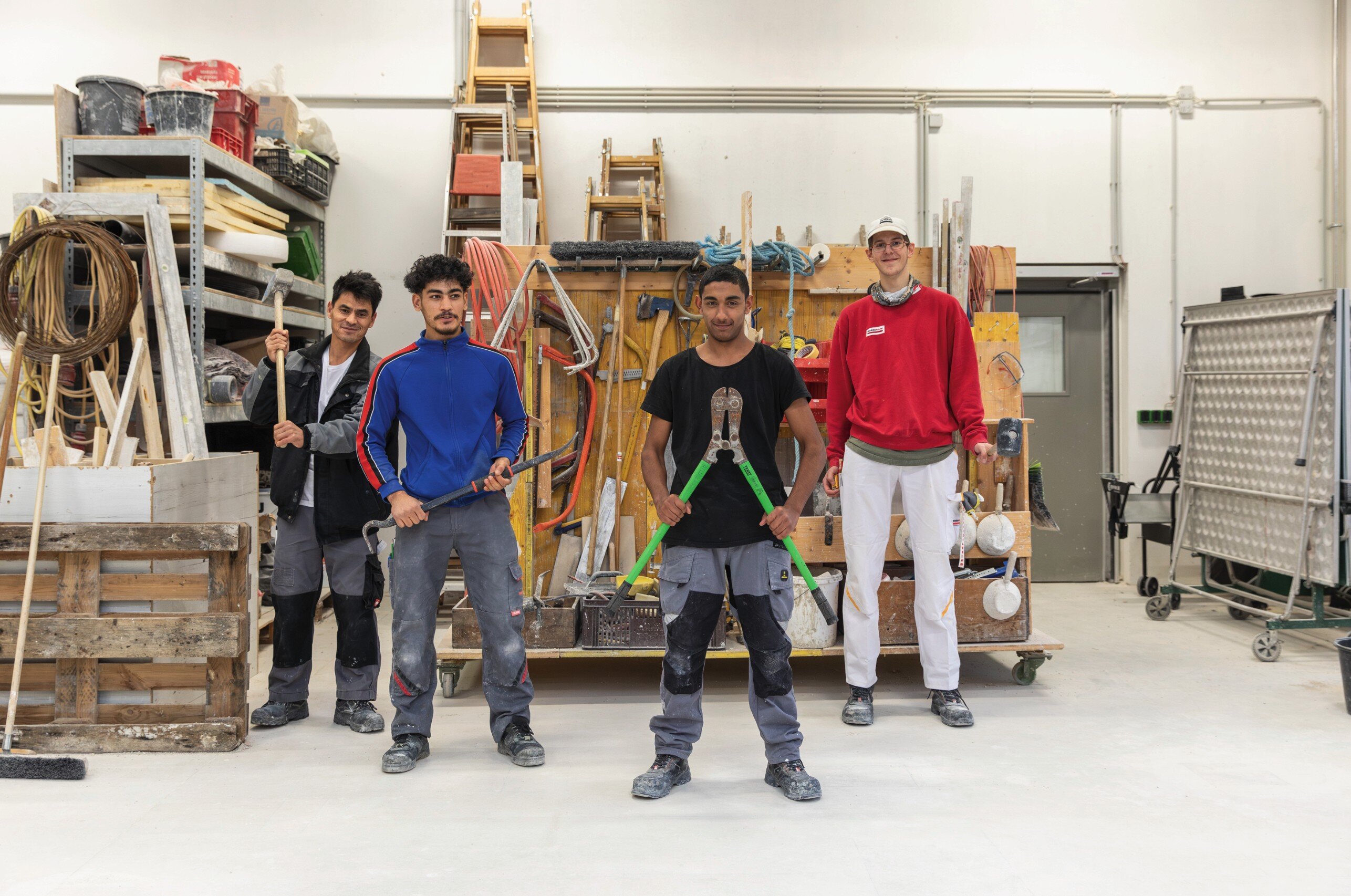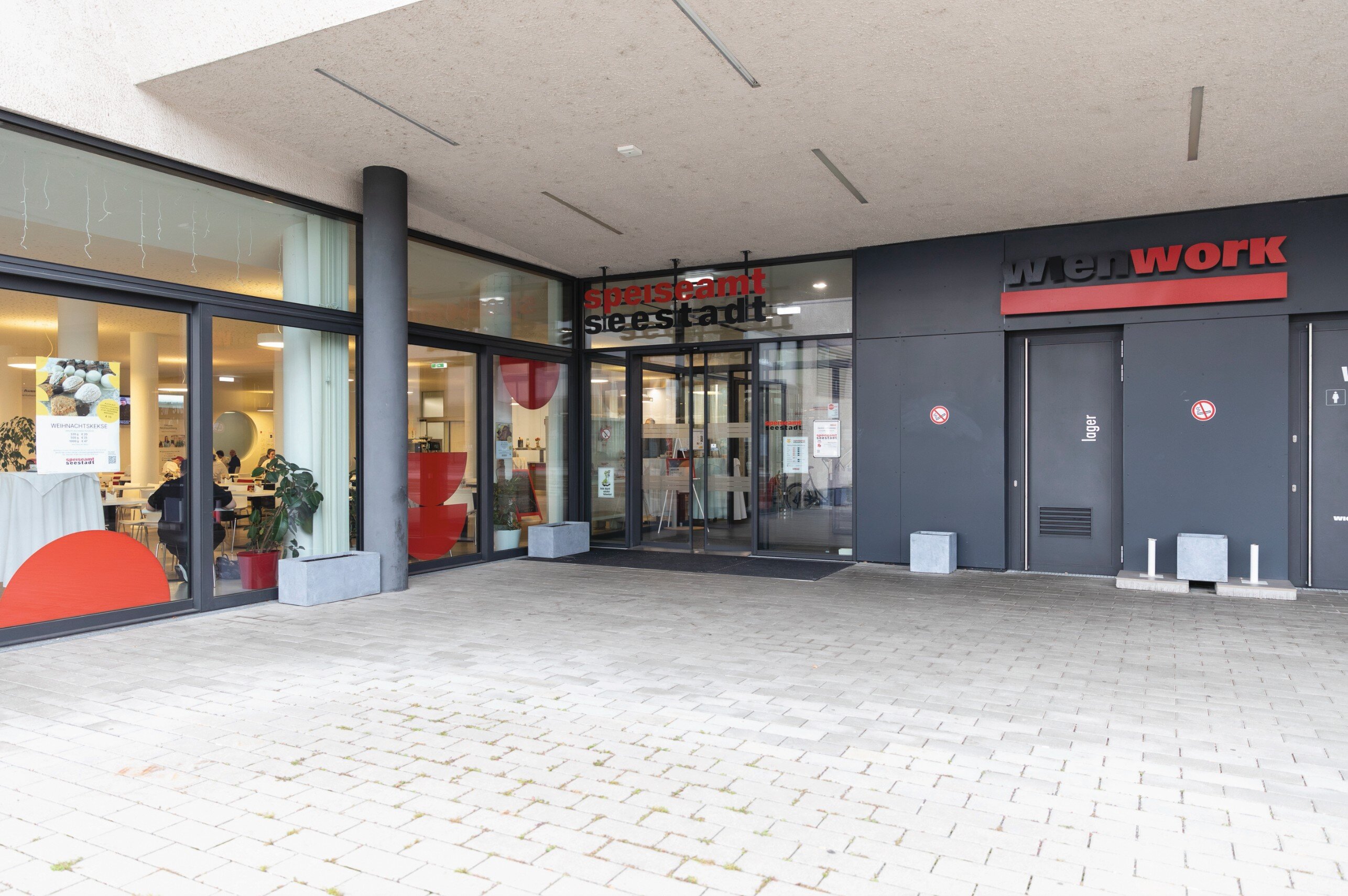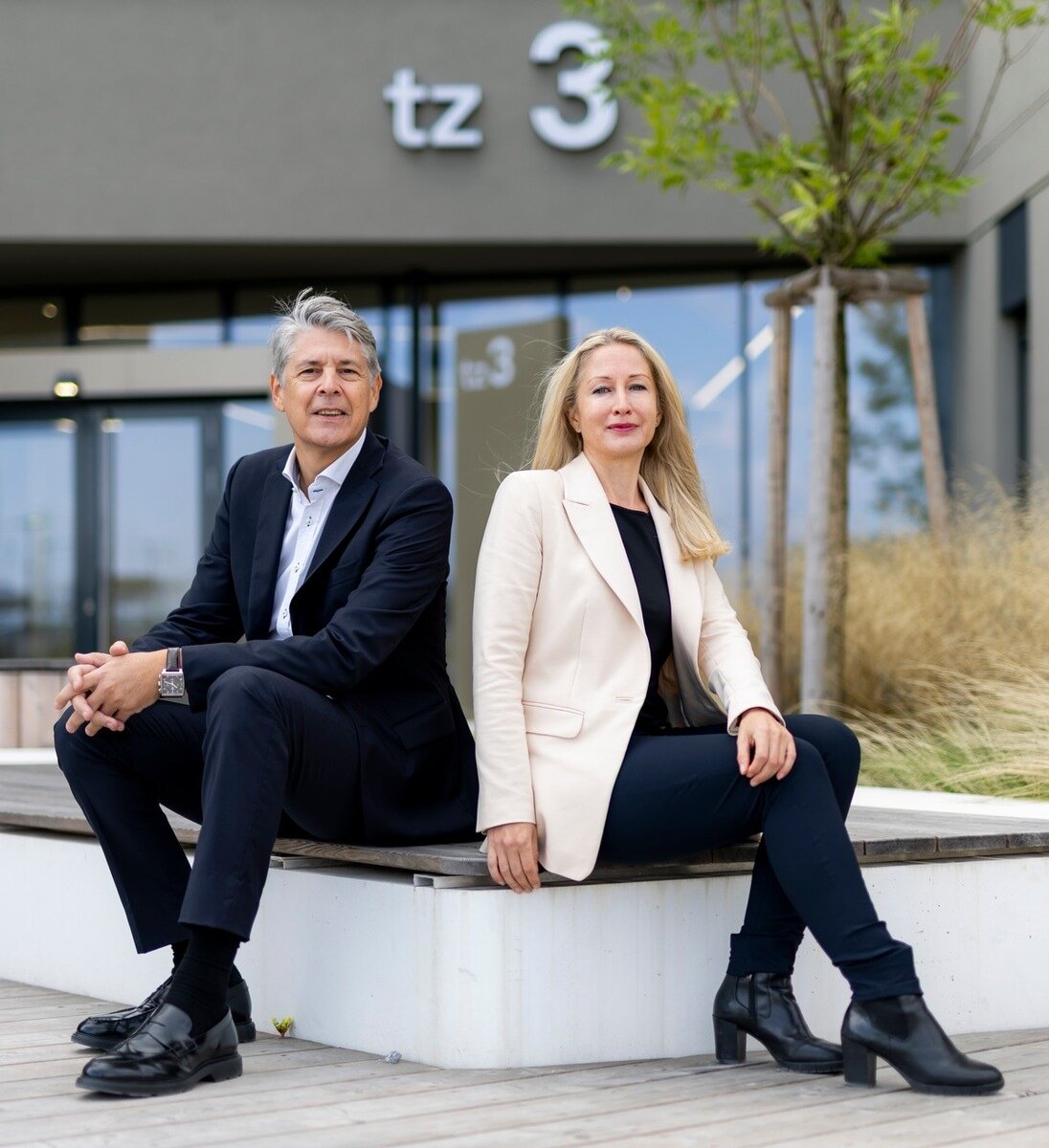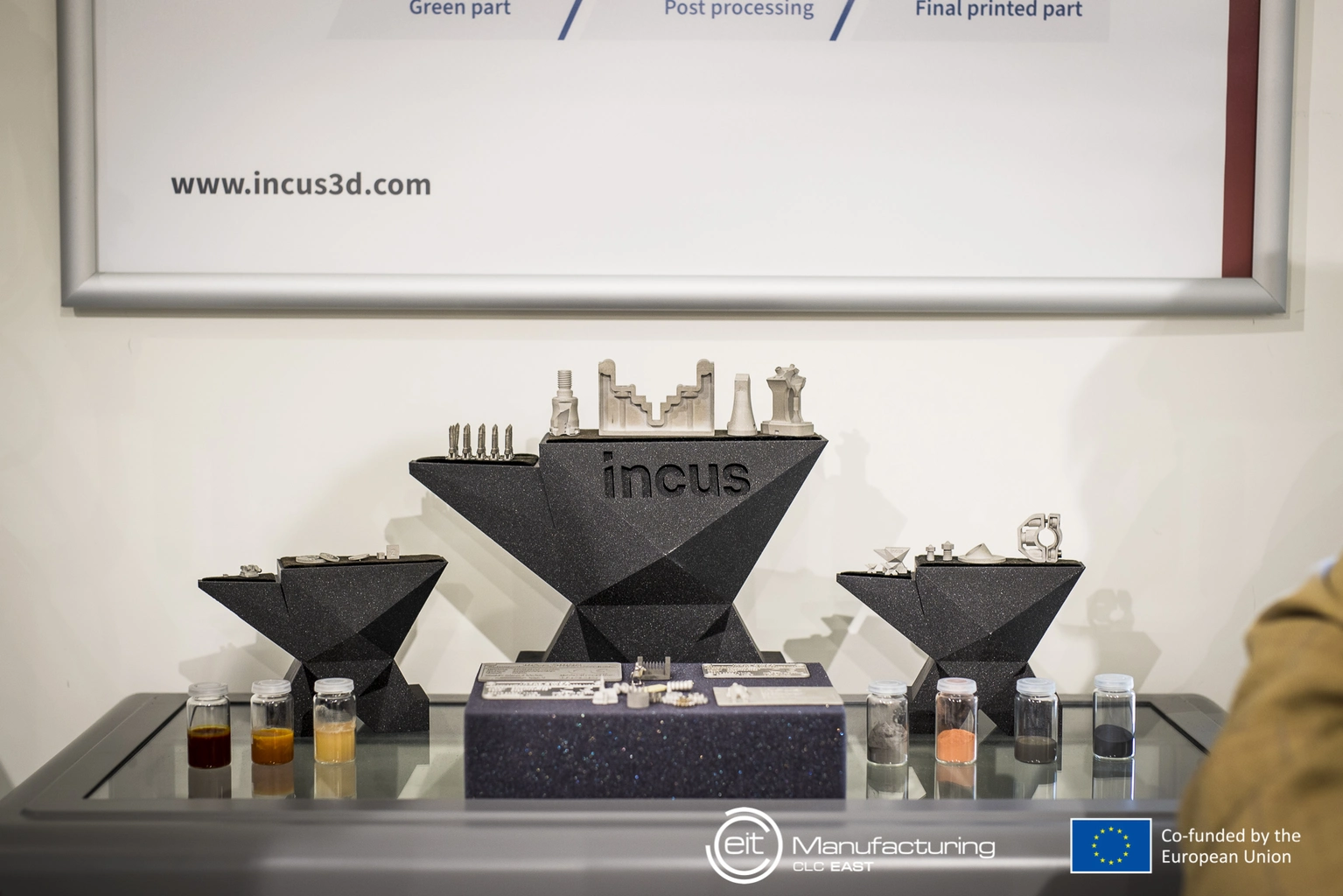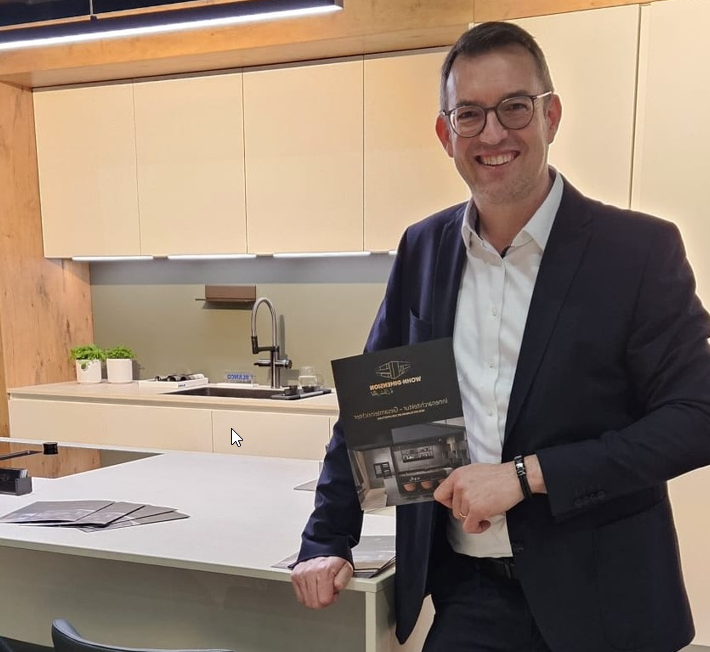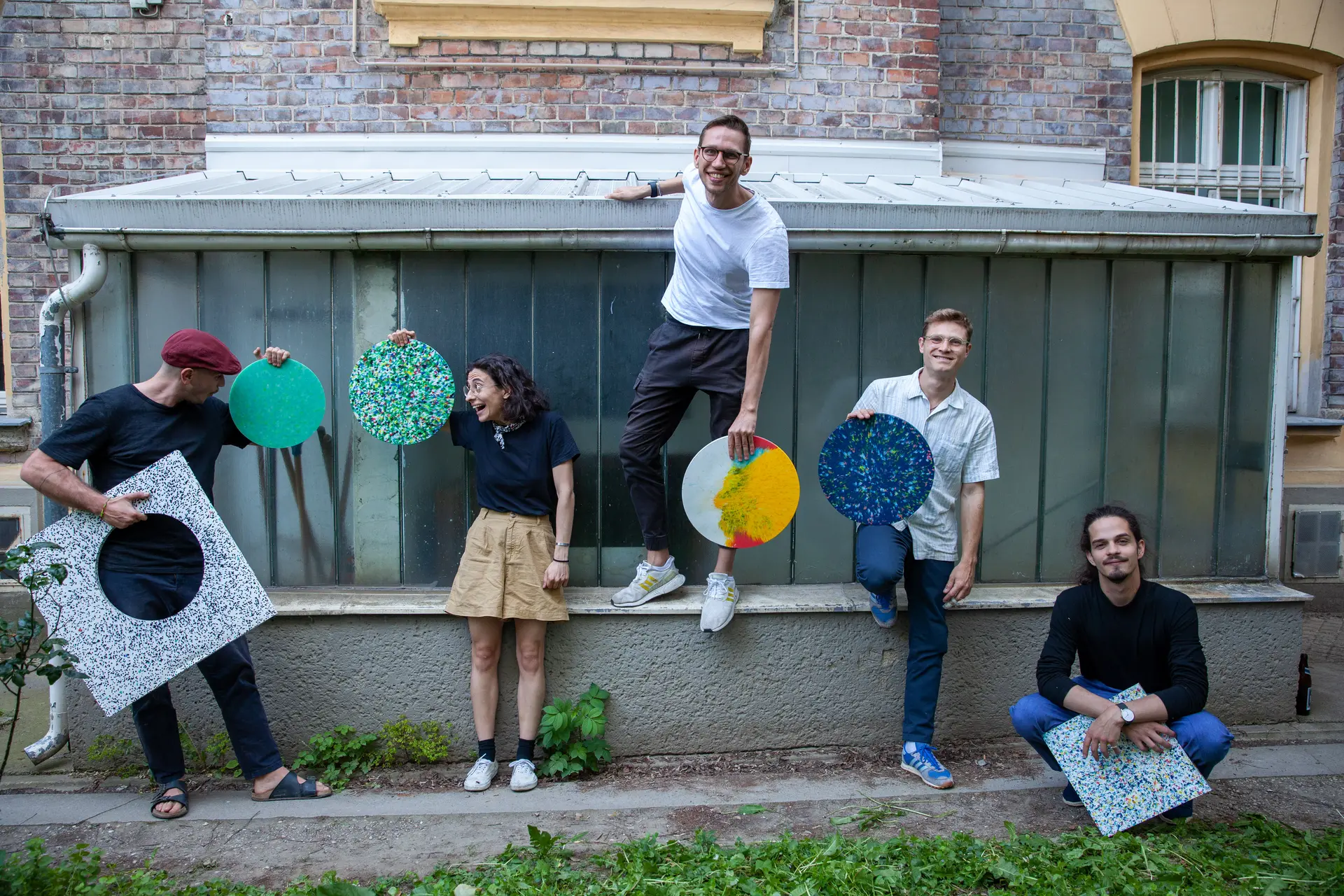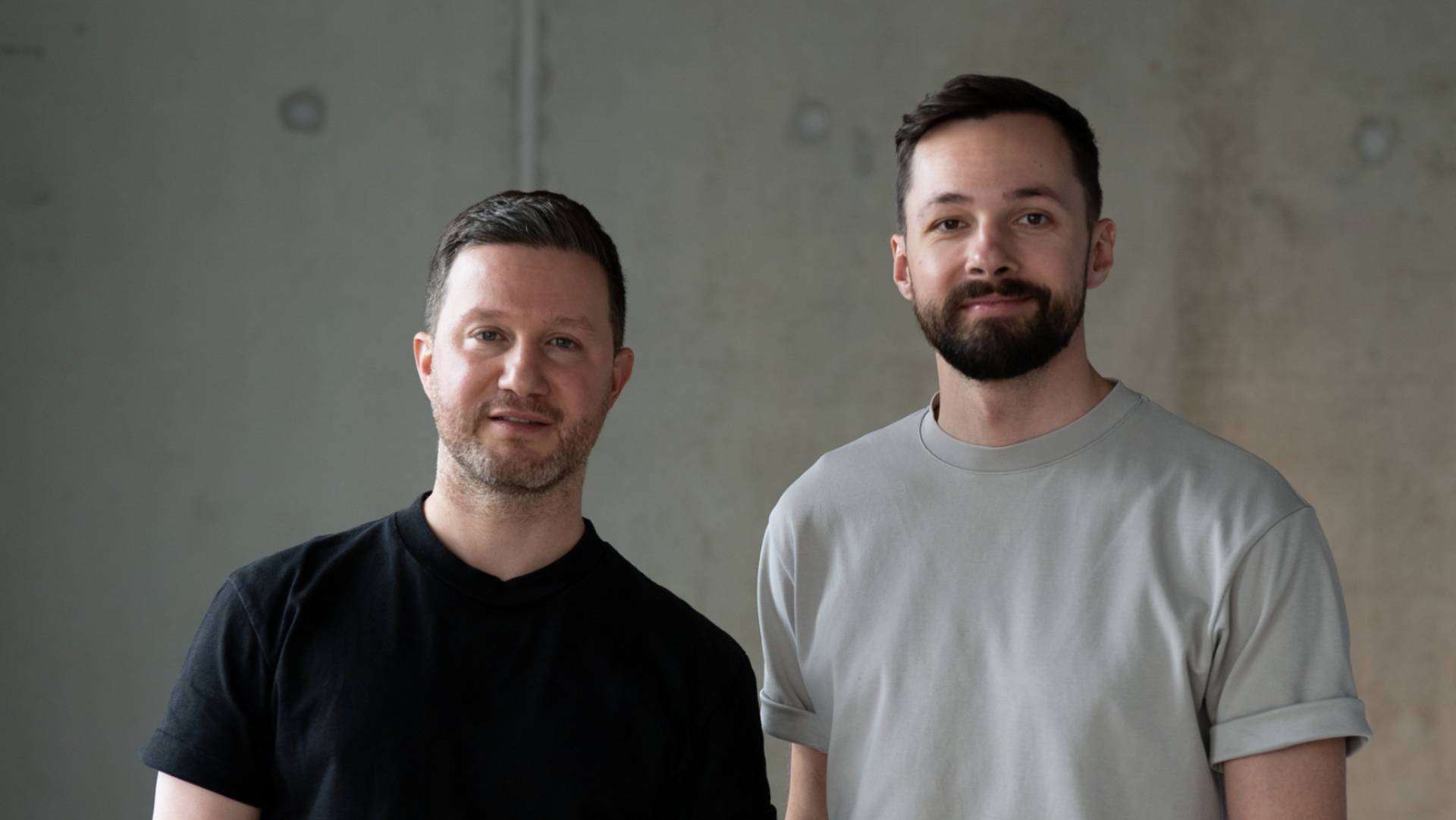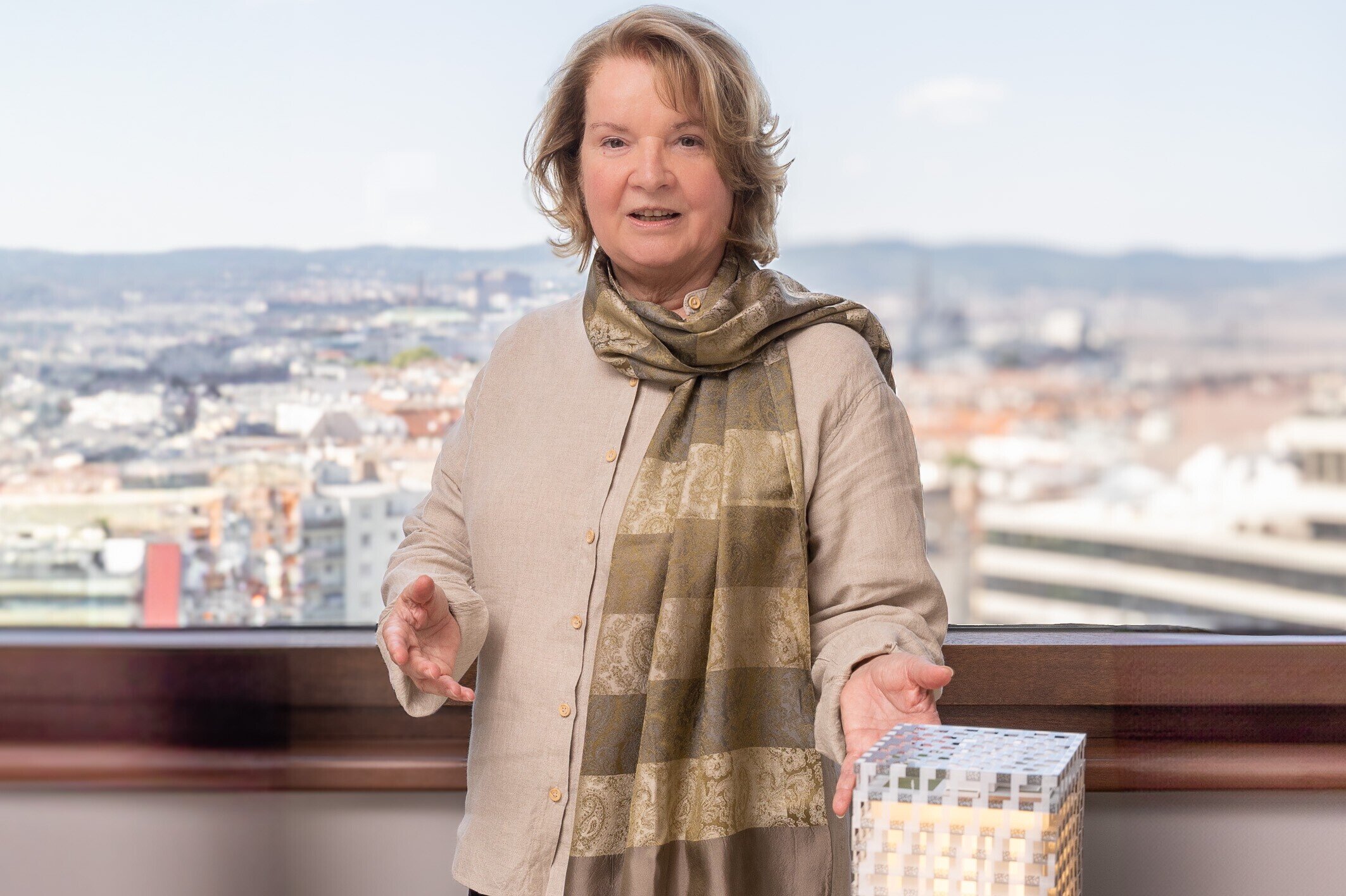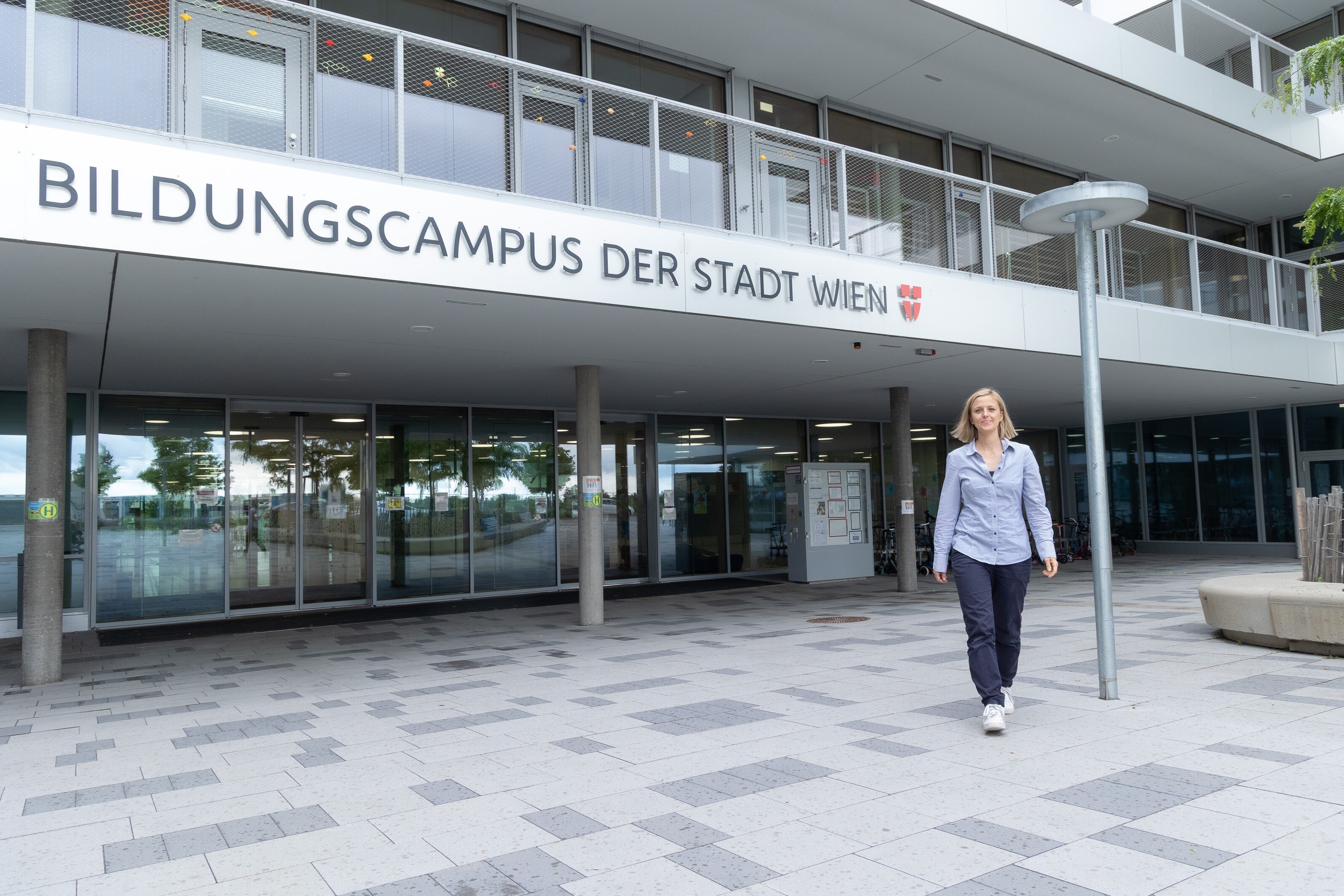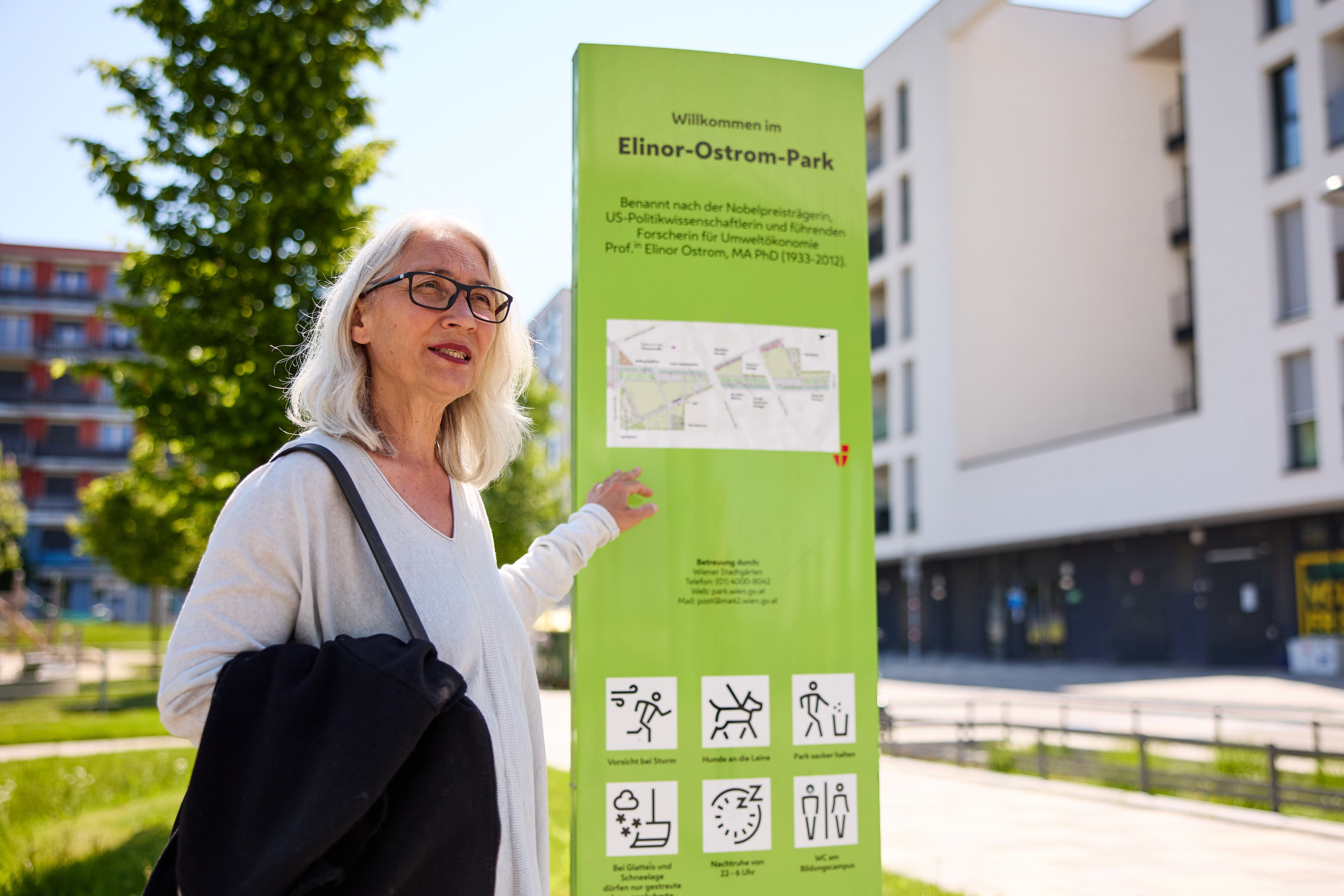Author
Gerhard Pohl
Published on 13.02.2025
From the business magazine "Workflow"
02/2025 About Growing.
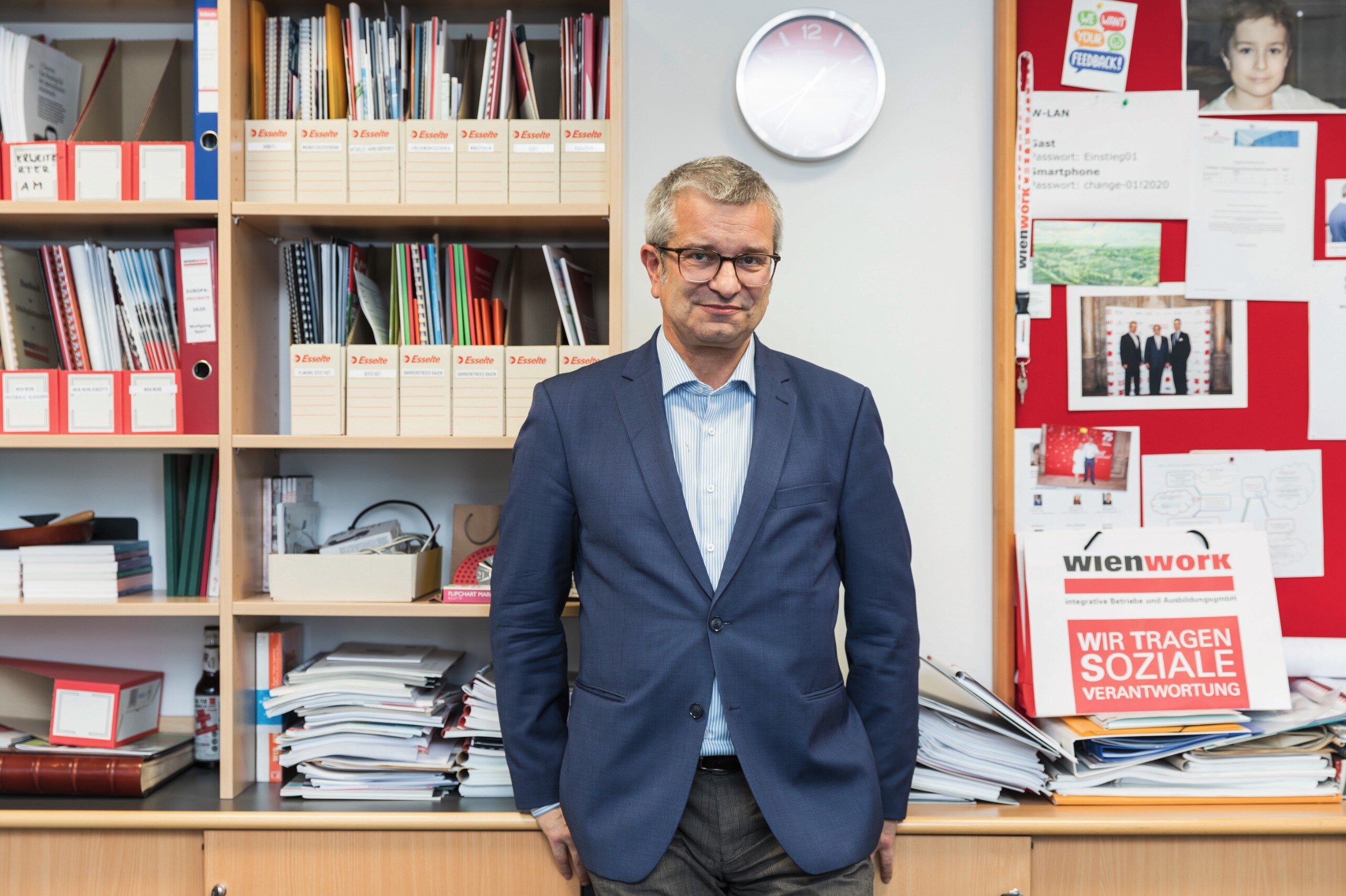
wienwork, founded in 1981 as an integrative company, demonstrates just how many pillars a single location can develop. With around 800 employees, it is now the largest employer in Seestadt. What makes it special: integrative companies must employ at least 60 percent staff with disabilities who cannot find work in the conventional labor market.
Since the 1980s, the Disability Employment Act has provided the framework for establishing integrative companies. Employers still need to be convinced to hire people with disabilities. Because this happens too rarely, companies pay a compensatory levy if they do not meet their quota of employees with disabilities. This levy funds integrative companies that hire people officially recognized as having a disability.
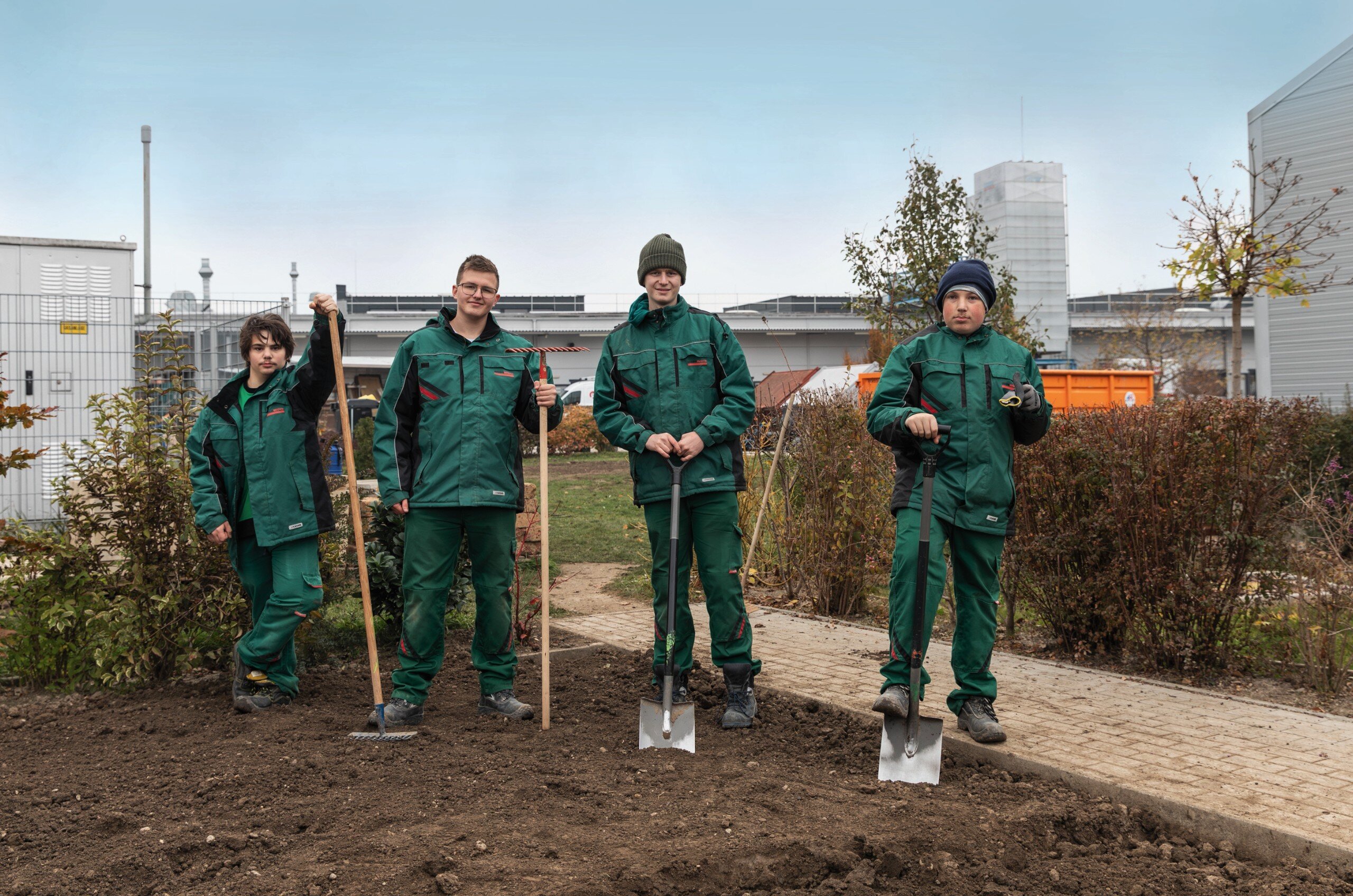
Open space. Whether mowing the lawn, scarifying, or planting, the landscape gardener apprentices take care of it.© Carolina Frank
Three-Pillar Strategy
wienwork is not only a successful integrative company on the market, but also has two additional pillars within the company: Inclusive Vocational Training and Job Management. “We train around 180 apprentices in eleven trades, closely linked to the business areas of the integrative company,” explains wienwork Managing Director Christoph Parak. Young people with cognitive impairments need approval from the Vienna Social Fund to start an extended apprenticeship at wienwork—four instead of three years.
“Gastronomy is the largest of our seven business areas in the integrative company,” reports Parak. “We operate 15 locations where meals are prepared. Our biggest customer is the Fortuna retirement homes, where we treat around a thousand residents to culinary delights every day.”
All from a single source. The construction professionals help with painting, tiling, masonry, and renovations. © Carolina Frank
Impressive Production Hall
Most wienwork business units in Seestadt are located in a 6,300-square-meter production hall that opened in 2015. Previously, they were spread across various locations in Vienna, which was problematic because the workshops were sometimes housed in historic buildings that were not accessible. Since 2017, the wienwork headquarters has also been located in Seestadt. The production halls are arranged around a spacious courtyard, which not only serves as a parking lot for the approximately 40 company vehicles but is also partly landscaped. This is taken care of by landscape gardening apprentices under the direction of René Eichhardt. The Berlin native came to Vienna 13 years ago out of a sense of adventure and has been working for wienwork for eight years now.
The carpentry apprenticeship is led by Tomislav Grieb-Jambrovic, who looks back on 14 years with the company. Thanks to successful market activity, the company now has a modern machine park that automatically handles demanding tasks such as edge banding. “We produce around 400 kitchens a year here, 300 of them for kindergartens and various municipal departments of the City of Vienna,” says Managing Director Christoph Parak. “We have been doing this since 2012. We charge market rates for our work; otherwise, we would come into conflict with the commercial sector.” wienwork is also successfully involved in many tenders. In the Digital Media business unit, for example, tamper-proof ID cards such as disability passes are produced for all of Austria.
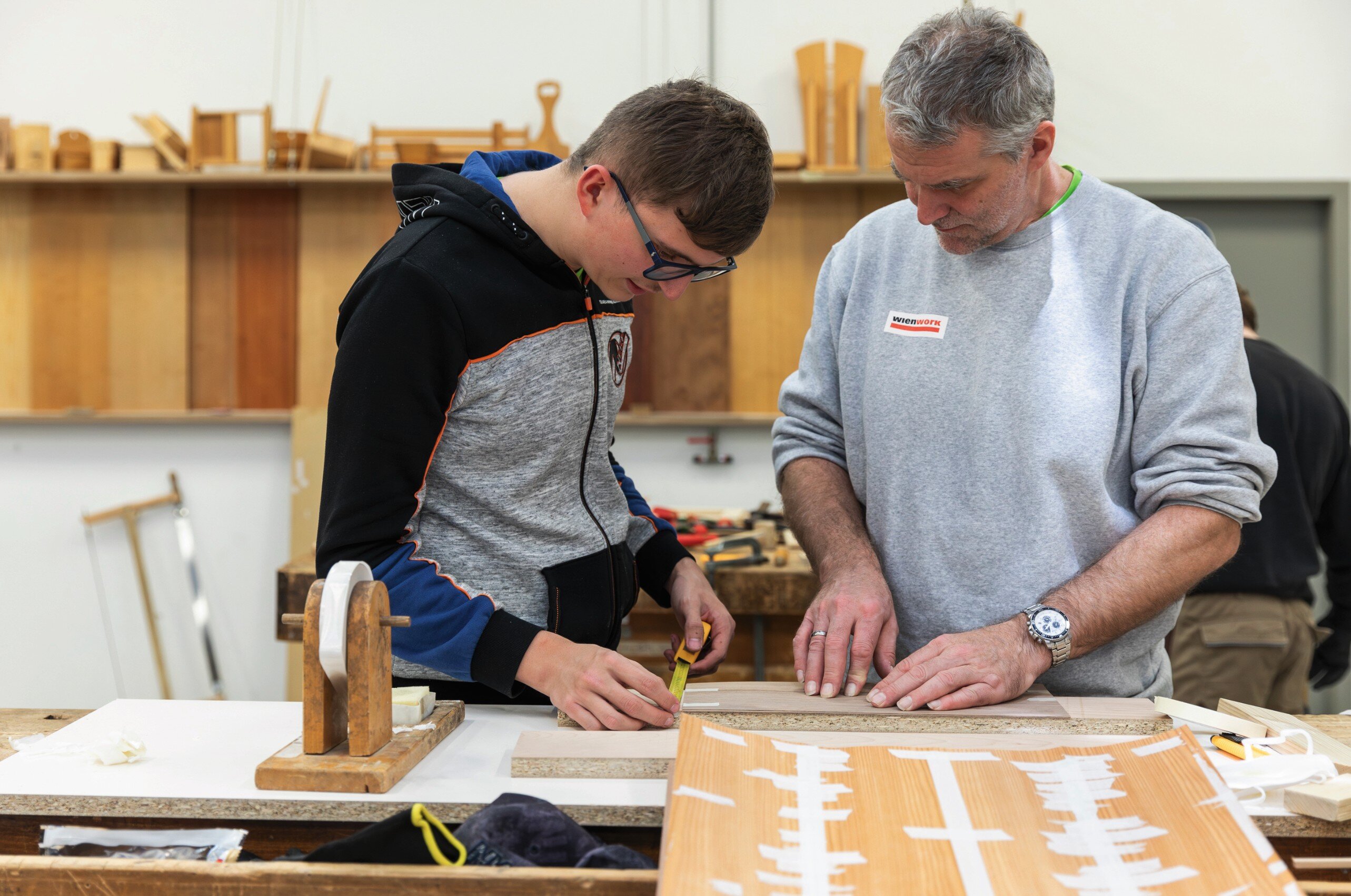
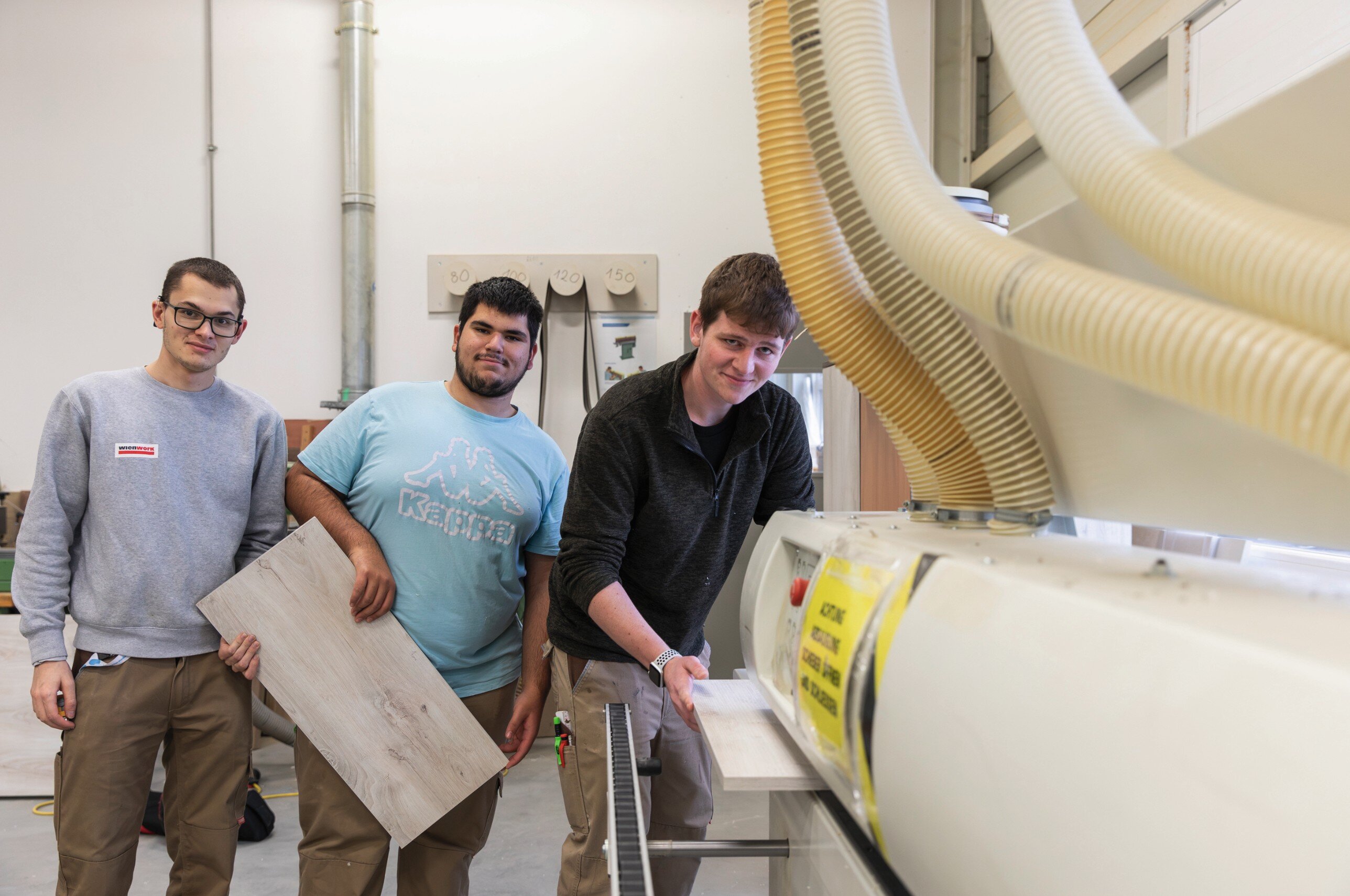
© Carolina Frank
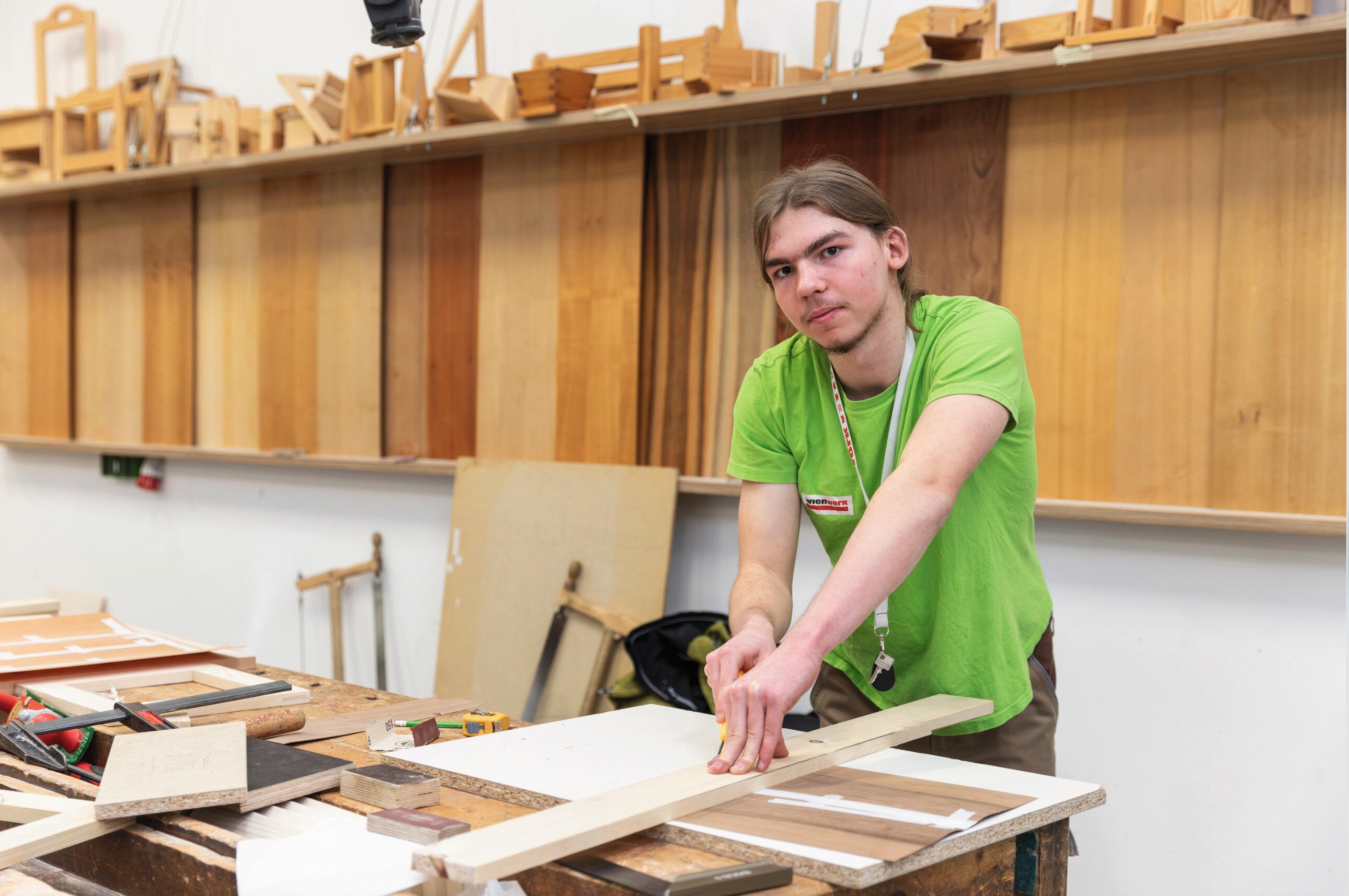
Fair Wages
A tour of the company grounds shows that wienwork operates like a conventional business, with the key difference that 70 percent of its employees have disabilities. Parak: “The central mission as an integrative company is to employ people with disabilities and enable their participation in society. To do this, we pay fair wages and salaries to ensure their livelihood.” Parak himself worked in labor market policy until two and a half years ago and headed an umbrella organization. He is therefore familiar with the general challenges and was able to get an idea of the specific challenges at wienwork in advance.
In the construction workshop, apprentices have been learning the masonry trade from Manfred Binder for seven years, with the special feature that, interestingly, no cement is used when building a wall. “Because the mortar doesn’t set, we can scrape off the material and reuse it again and again,” explains Binder.
In the long building on the opposite side, you’ll find the textile cleaning, ironing, and sewing service. Employees of the integrative company and apprentices from the training team led by Elisabeth Böhm work here together in bright white workwear, providing hygienically clean laundry for hotels or rescue organizations, for example. After successfully completing their apprenticeship exams, wienwork graduates are usually placed in external jobs. A multidisciplinary team, including special education, social work, and psychological counseling, is committed to ensuring their success.
Unique Integrative Company
In terms of size and diversity, wienwork is unique among the eight integrative companies in Austria. The others are heavily industry-oriented and offer training and jobs in electrical engineering, metal, or wood production. wienwork is more active in the service sector. “In job management, we are currently involved in seven projects that are 100 percent funded,” reports Parak. “Five of these consulting projects are tailored to a young target group, for example, to advise young people in the 21st and 22nd districts and help them find career prospects. Here, we work with schools and parents because there is a compulsory education requirement up to the age of 18.”
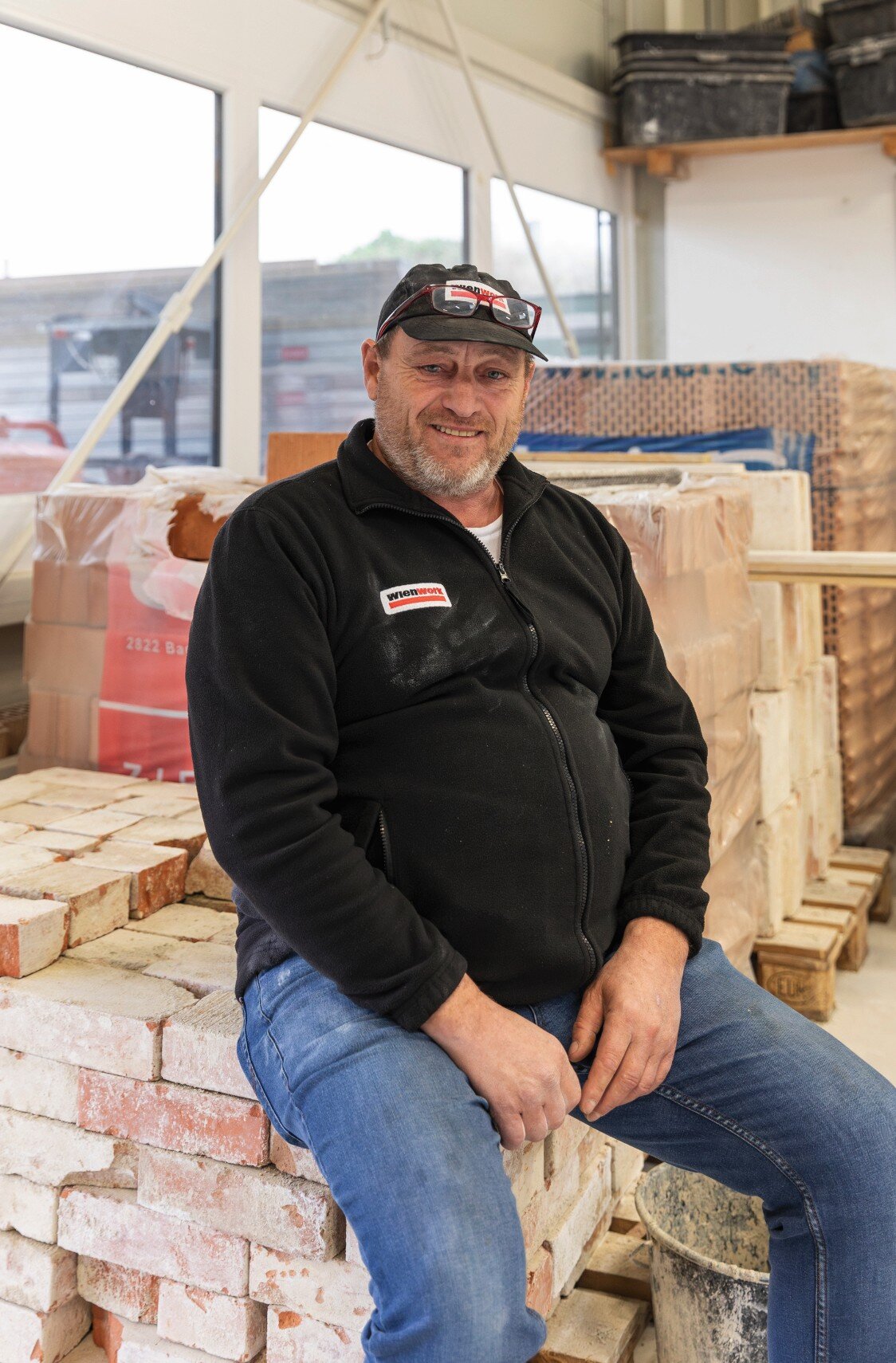
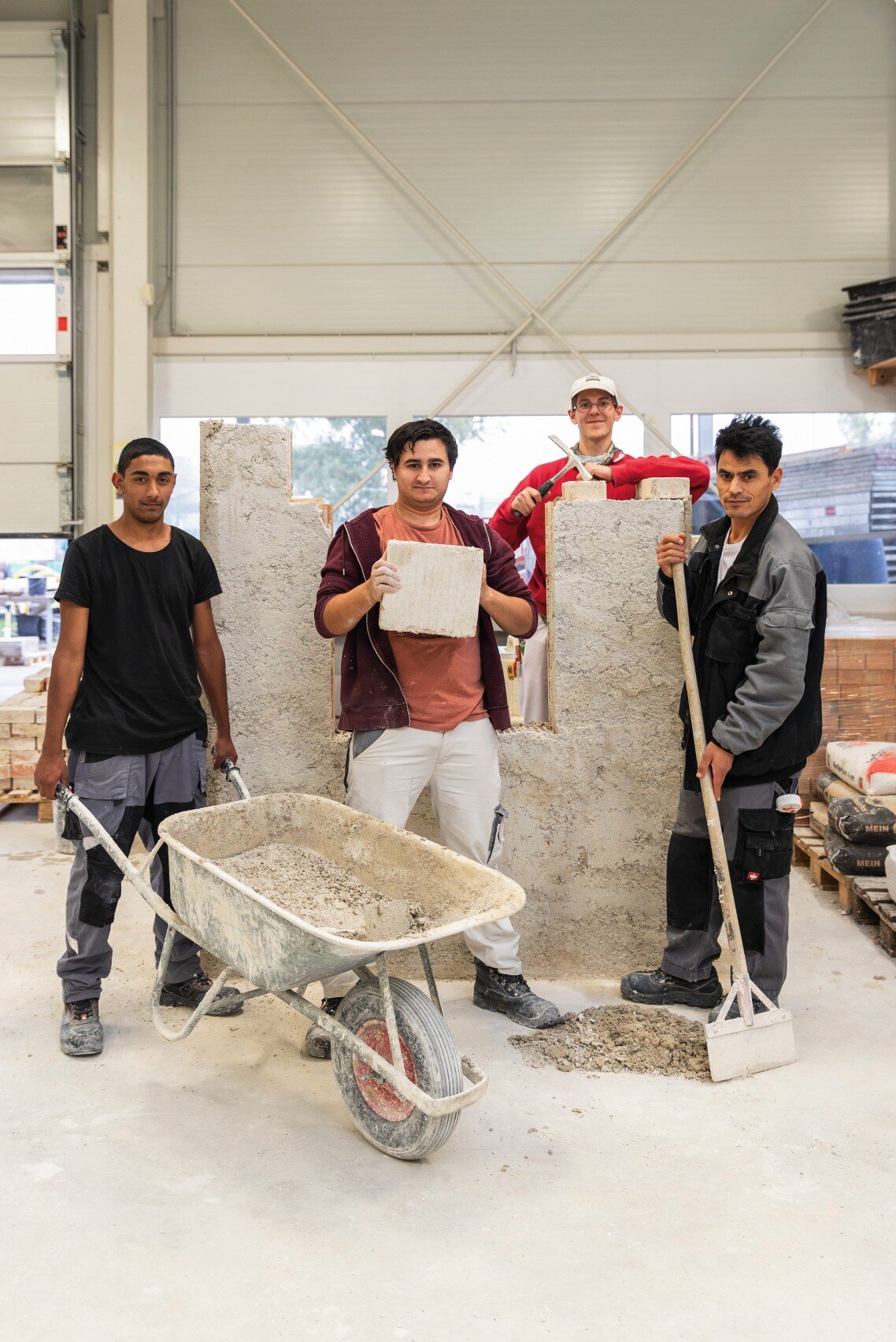
© Carolina Frank
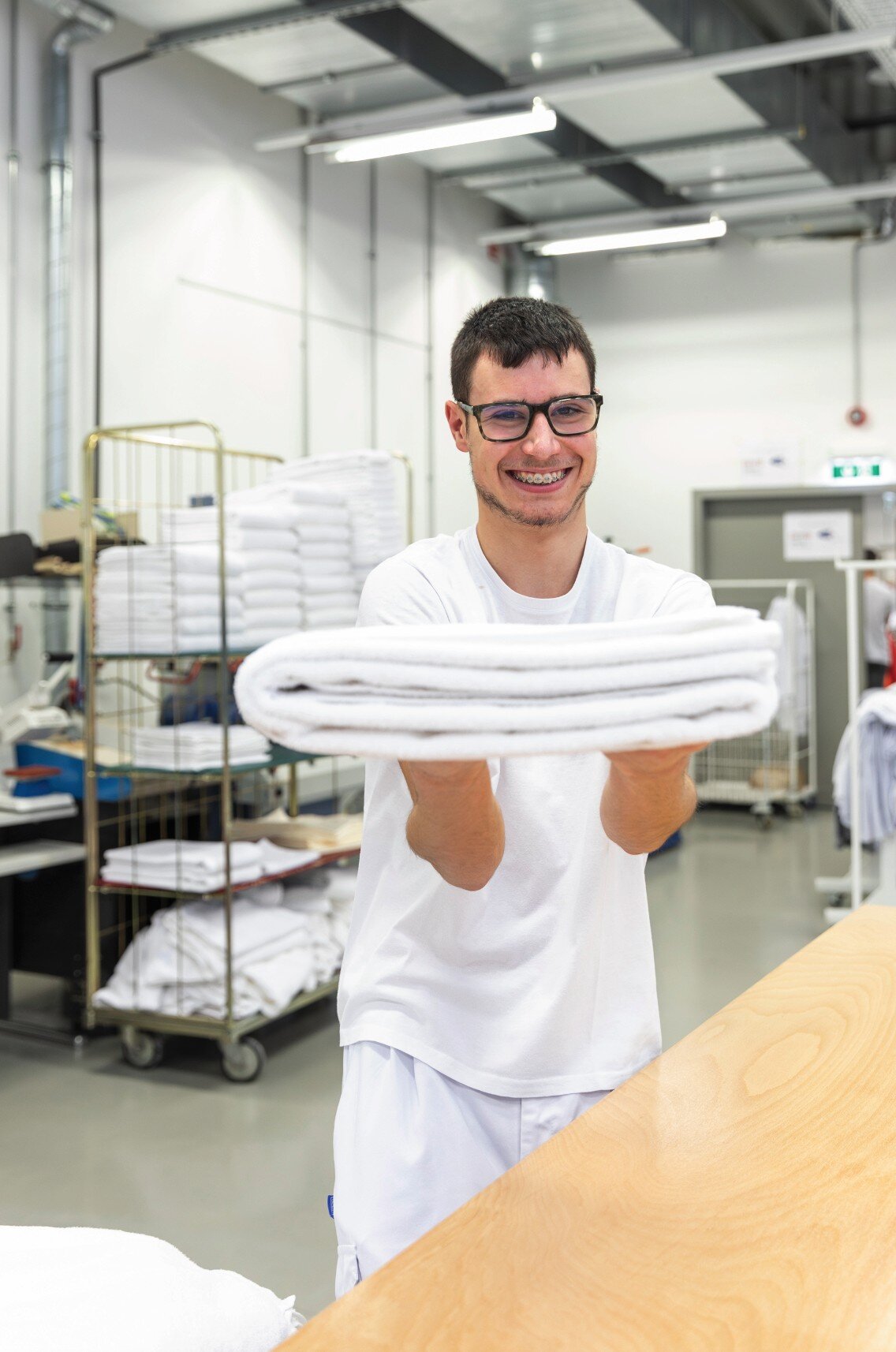
wienwork is now an indispensable part of Seestadt. Parak: “For example, we operate a postal partner branch. As the largest employer on site, we also support the development of Seestadt. We are pleased, for instance, when the pharmaceutical company Takeda establishes a research facility for rare diseases here, and the long-established company Hoerbiger is now considering employing more people with disabilities.” In this way, wienwork fulfills a pioneering role for the public sector.

